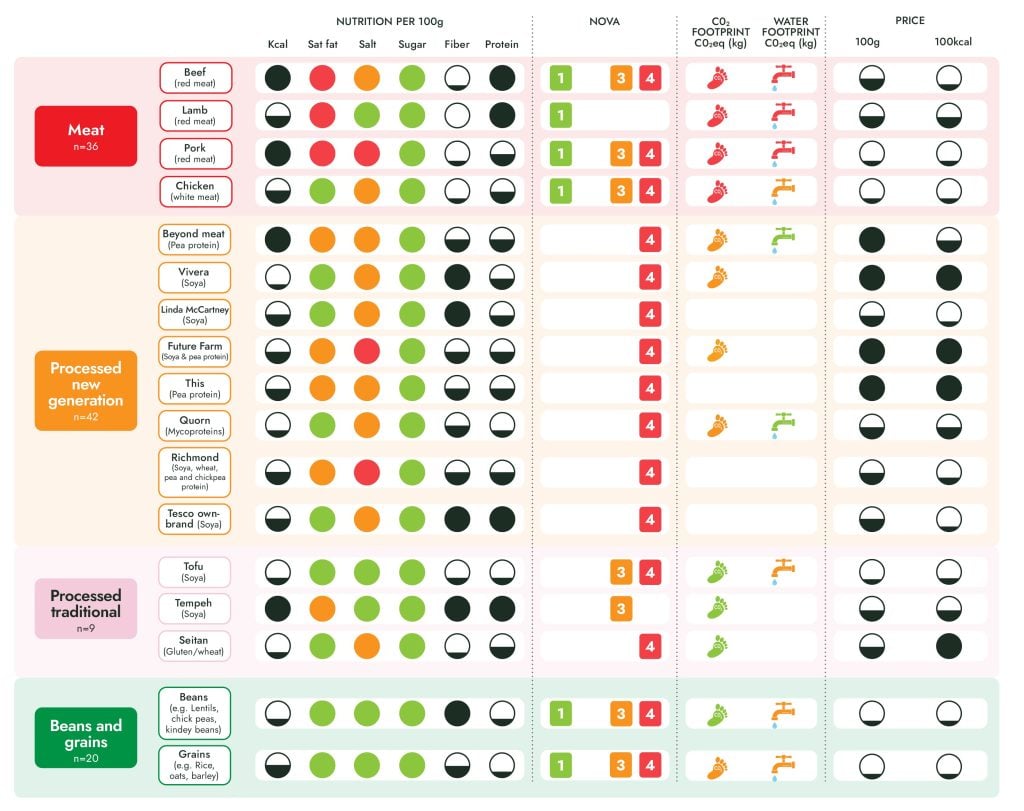Did you know the food system is responsible for 30% of Greenhouse Gas Emissions and one in five deaths?
In the UK, overweight and obesity are leading causes of death and disability, yet in many cases this is preventable. At the same time, 1 in 10 people don’t have enough food to eat. Our food production is also causing harm to climate and nature, damaging the very conditions we need to grow food now and in the future— stable weather patterns, healthy soils, clean water and oceans.
The pace of change needed to transform the food system is lightning speed, and the power to make a difference starts on our plates. As a community of Green Runners committed to making changes for a fitter planet, we can all pay attention to feeding ourselves a healthy diet within planetary boundaries.
Are you ready to find out more?
Last week, The Food Foundation released new research that shows having more plant-rich diets can deliver benefits for human and planetary health. However, while the environmental case for eating plant-rich diets is clear, health implications of shifting diets is more nuanced, depending on what is being substituted and by whom.
To help you understand the benefits and considerations associated with eating a wider mix of protein-based foods, I’ve packaged up some of the key insights from Food Foundation’s analysis of 100+ protein products.
The analysis, in the table below, compares types of protein including meat, and plant-based alternatives. Each protein type has been scored for its nutrition, how processed it is (using a methodology called NOVA), its environmental outputs (including carbon, water), and price.

What does the research show?
First off, Food Foundation data shows that each of the plant-based protein categories was, on average, lower in calories, saturated fat, and higher in fibre compared to meat products. Of all the different categories included in this research, beans and grains performed most strongly across all the considerations (nutrition, processing, environment, affordability).
All types of plant proteins included in this research had much lower greenhouse gas emissions compared to meat. Without wanting to overload you with carbon calculations, the average emissions of plant proteins ranged from 0.5 to 5 kg of carbon per kilogram compared to an average of 39 kg of carbon emitted per kg for meat products. That’s a big difference when it comes to how we show up to respect planetary boundaries.
The meat products analysed were higher in protein than plant foods but in the UK adults eat on average 35% more protein than is recommended. The British Nutrition Foundation says “shifting to more plant-rich diets would be unlikely to negatively impact the overall protein adequacy of diets” . An additional note to our readers, however: be aware that athletes’ protein requirements may be higher than the population average. If you’re interested, you can read more here.
And one final note on the data: Despite media headlines about plant based foods being ultra processed, this 100+ product analysis showed all categories of protein foods include UPFs (Ultra-Processed Foods). For example, more than a third of meat products in the analysis were shown to be UPF vs 44% of ‘traditional’ plant proteins (such as tempeh and some tofu products).
The Food Foundation points out that misinformation around plant-based proteins has been driven by a small group of social media accounts associated with self-described wellness experts or right-wing media and meat industry lobbyists. Worth bearing in mind next time you see a negative plant based headline?
Our food choices hold immense power to shape our own health and the health of our planet. Let us know if you found this blog useful in the comments!

About Ali
Ali Morpeth is a Green Runner and Registered Public Health Nutritionist (RNutr) with 15+ years experience working across sectors to support healthy people, healthy planet. She was awarded ‘Sustainability Nutritionist of the Year’ last year, and works with responsible business, policy makers and NGOs to solve our food related public health & climate crisis.
You can find out more about Ali on her website and social media.
Want to know more about this work?
You can find Food Foundation’s full report here. Give Rebecca Tobi and Indu Gurung a follow for ongoing insights on this topic area.


